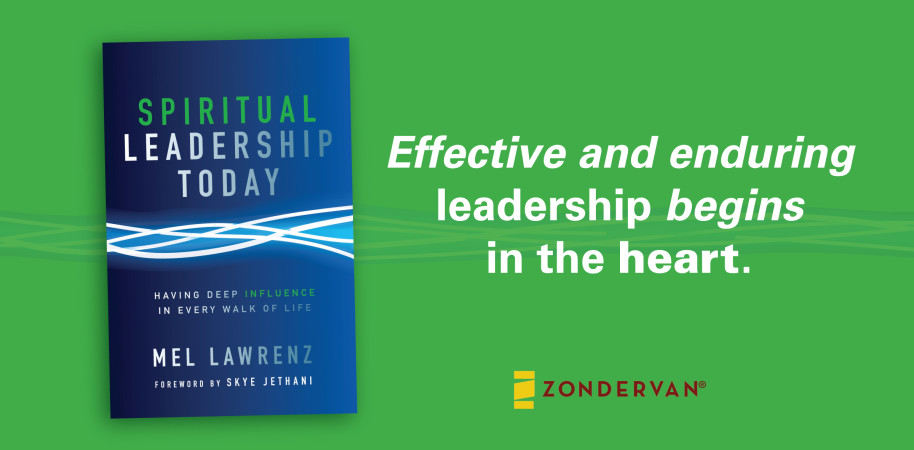In his epistle, James puts a spotlight on “the wisdom from above.” He contrasts it with “earthly wisdom,” which is so misguided that it leads to “envy and selfish ambition,” “disorder,” and “every evil practice” (James 3:16).

Then in one defining statement James identifies seven characteristics of this wisdom that comes from a source higher than ourselves. This could serve as a charter for everyone who is committed to basing their influence on wisdom. Here it is, brief but forceful: “But the wisdom that comes from heaven is first of all pure; then peace-loving, considerate, submissive, full of mercy and good fruit, impartial and sincere” (James 3:17). Like the book of Proverbs in the Old Testament, James offers precepts on a life shaped by divine wisdom. This is not theory and certainly not esoteric knowledge-it is practical in every way. And it is the substance of spiritual influence.
So James 3:17 begins by saying the wisdom from above is “pure.” The people we deem to be extraordinarily wise probably are people who are relatively free of mixed motives, are not driven by personal ambition, and have generous, stable attitudes. This is the meaning of purity, and it is what makes some people open conduits of God’s wisdom. They don’t mess things up with themselves. They look you in the eye and see you for who you are and not who they want you to be for them. (Application: leadership that is pure has a moral and ethical clarity.)
James 3:17 then says this spiritual wisdom is “peace-loving.” Wise people are driven by a longing for and belief in reconciliation. They know what happens when someone finds peace with God. They make every effort to bring people together, to promote forgiveness and forbearance. Their wisdom steers them away from superficial peace because they know that the only thing worth seeking is the peace that “transcends all understanding” (Phil. 4:7). (Application: leadership that is peace-loving will bring people together rather than dividing and conquering.)
Next, the wisdom from above is “considerate.” This is not mere politeness. Consideration for his people is a core characteristic of God in the Old Testament–he is the king who cares for his people at the same time that he rules them. (Application: leadership that is considerate is always humane–like God.)
This wisdom is also “submissive.” This is not weakness, but the willingness to yield. It is the teachable attitude, the cooperative spirit, the opposite of obstinate self-confidence. (Application: leadership that is submissive is always improving because it is open to learning and changing.)
“Full of mercy and good fruit” is the next description in James 3:17. Wisdom is not passive. It propels people toward action, but not just any action. Wisdom gives us a vision to see real human need and to help those in need with practical acts of mercy. (Application: leadership that is full of mercy and good fruit is a gift to humanity.)
The wisdom that comes from God is “impartial.” In a world where people get ahead through privilege, status, and connections, wisdom rejects the games and renounces favoritism. The unselfish character of wisdom makes it impartial. (Application: leadership that is impartial raises everyone above the seedy side of human manipulation.)
And finally, the “wisdom from above” is “sincere.” In Greek: anhypokirtos–without hypocrisy. The word hypocrite means “actor.” And today actors have more than one theater in which to put on their show. The television screen, the social networking website, and the jackets of hardcover books are ready-made stages. And what is played on those stages may be sincere or utterly false. (Application: leadership that is sincere is conspicuously honest, and thus able to engender trust and ultimately achieve higher purposes.)
So what then is wisdom? Both a special gift from God and a personal skill that is developed over time, wisdom is deep insight into the true nature of things, including their moral value, and the integrity to act on that insight. Wisdom is not different from knowledge, but is more than knowledge–like the difference between knowing about your spouse and knowing your spouse.
When leaders crave wisdom, they want their decisions to be morally good, not just measurably productive. They want to untangle problems others have given up on. They don’t mind wading into seemingly unsolvable situations because they figure that someone has to start untangling the knots everyone is staring at.
Wise leaders naturally engender trust because they stream wisdom. They are not egotistical, because they are viscerally repulsed by arrogance. They are also brave enough to accept being confronted regarding their own moments of foolishness.
Only fools never feel foolish.

Pastor Lawrenz,
My dear wife and I attended Elmbrook church tonight as it was an extreme pleasure to here your presentation of the Gospel.
However, your analogy of some of the cruelties of your line of work were presented as “Pastors do not have weight watchers they have congregations” as Church Pastors are like stand up comedians such as Seinfeld. When one of our dear Elmbrookers confronted you with a bit of weight gain.
I am well over sixty and have gained some weight. So what? Should I lose some weight ? I should. Lets just say this about me as I have lost weight and am healthy as do I have that slim 32 inch waist line like I had in my twenty’s? No I don’t as that is the past.
Here is what I have to say about that as you have had some very substantial trauma in your life including huge loss of a family member and a horrible accident that left you disabled for months on end. For me personally your recovery has been remarkable as I feel you are absolutely at the top of your game as a preacher as God raised you up for this moment in Elmbrook’s history.
“Every knee shall bow and every tongue shall confess that Jesus is lord”.
I bow and confess that Jesus is lord. Did I break any American law?
Should we use American Jurisprudence to force a bended knee?
Our American founders pontificated upon the separation of church and state as I agree.
Is there any law against love demonstrated bringing perfect peace and healing and understanding?
We need foreign missionaries to tell us about Jesus and who he really was.
Frankly, your sermon tonight was simply excellent.
Just an opinion….
Nine
This is a pure wisdom from above! Oh! How I crave it!!!